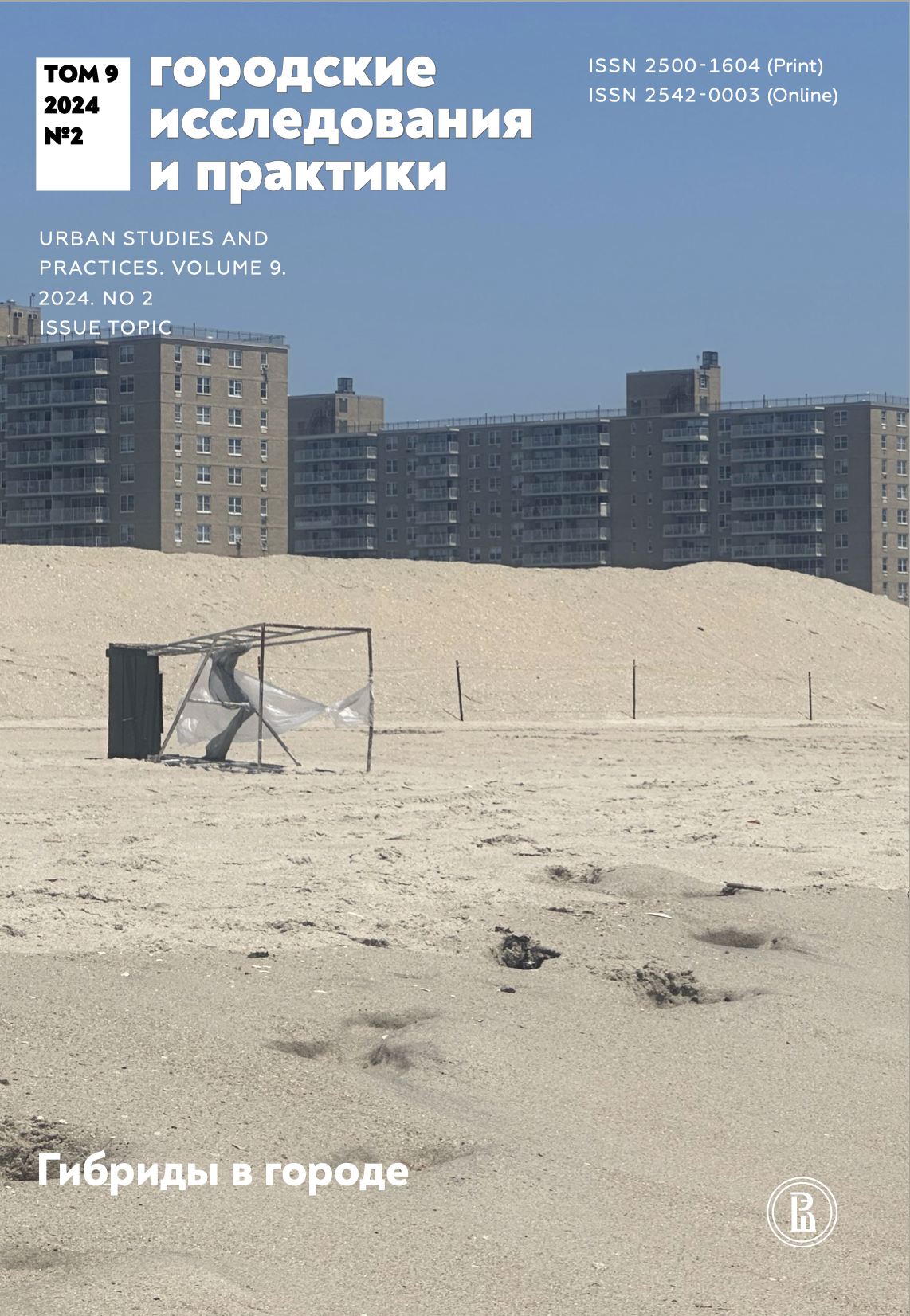Precarious Encounters
Abstract
This paper explores the conceptual implications of the proliferation of radioactive wild boars in the Fukushima exclusion zone after the 2011 nuclear meltdown. Shukin uses this striking example as an occasion to conceptualize a “becoming-species” of precarity—a way of accounting for how nonhuman lives and multispecies relationships are caught up in and impacted by conditions of generalized insecurity under global capitalism.
Building on feminist and posthumanist critiques, Shukin argues that most theorizations of precarity remain limited by anthropocentric assumptions that only humans can subjectively experience precarity. In contrast, the political framework of the becoming-species of precarity is attuned to how human and nonhuman lives are entangled and co-constituted. Shukin positions encounters with animals as infrastructural supports for governing precarity and repairing damaged life. The boars’ resilience in Fukushima’s radioactive ruins represents an ungovernable autonomy that disrupts sovereign attempts to restore capital accumulation and circulation.
Shukin suggests that precarious encounters with the boars catalyze an ambivalent, “transitional infrastructure” that opens onto alternate multispecies commons, beyond compulsive efforts to repair a “malfunctioning world.” Rather than symbols of ungoverned vulnerability, the radioactive boars emerge as figures of ecological remembrance and symbolic reminders of the precarity intrinsic to all life under capitalism.
Downloads
References
Цзин А. Л. (2017) Гриб на краю света: О возможности жизни на руинах капитализма. М.: Ад Маргинем.
Корбут А. (2017) От переводчика // Гоффман Э. Поведение в публичных местах: заметки о социальной организации сборищ. М.: Элементарные формы. С. 355–364.
Allison A. (2013) Precarious Japan. Durham, NC: Duke University Press.
Azuma H. (2009) Otaku: Japan’s Database Animals. Translated by Jonathan E. Abel. Minneapolis: University of Minnesota Press.
Berlant L. (2016) The Commons: Infrastructure for Troubling Times // Environment and Planning D: Society and Space. Vol. 34. No. 3. P. 393–419.
Broglio R. (2016) The Creatures That Remember Chernobyl: Radioactive Boars and Bunnies Won’t Let Us Forget about the Nuclear Disaster // The Atlantic. Режим доступа: http://www.theatlantic.com/science/archive/2016/04/the-creatures- that-remember-chernobyl/479652/ (дата обращения: 12.07.2016).
Casas-Cortes M. (2014) A Genealogy of Precarity: A Toolbox for Rearticulating Fragmented Social Realities In and Out of the Workplace // Rethinking Marxism: A Journal of Economics, Culture & Society. Vol. 26. No. 2. P. 206–226. DOI: https://doi.org/10.1080/08935696.2014.88849.
Federici S. (2016) Precarious Labor: A Feminist Viewpoint. Режим доступа: Inthemiddleofthewhirlwind.wordpress.com/precarious-labor-a-feminist-view-point (дата обращения: 03.07.2016).
Haraway D. (2003) The Companion Species Manifesto: Dogs, People, And Significant Others. Chicago: Prickly Paradigm Press.
Horning R. (2012) Precarity and ‘Affective Resistance’ // The New Inquiry. Режим доступа: http://thenewinquiry.com/blog/precarity-and-affective-resistance/ (дата обращения: 12.07.2016).
Hribal J. (2007) Animals, Agency, and Class: Writing the History of Animals From Below // Human Ecology Review. Vol. 14. No. 1. P. 101–112.
LaMarre T. (2010) Speciesism, Part II: Tezuka Osamu and the Multispecies Ideal // Mechademia. Vol. 5. P. 51–85.
Lorey I. (2015) State of Insecurity: Government of the Precarious /A. Derieg (trans.). Verso.
More Boars Mean More Damage in Fukushima (2013) // The Japan Times. Режим доступа: https://www.japantimes.co.jp/news/2013/09/24/national/more-boars-mean-more-damage-in-fukushima/ (дата обращения: 05.07.2016).
Morton T. (2013) Hyperobjects. Philosophy and Ecology after the End of the World. Minneapolis: University of Minnesota Press.
Neilsen B., Rossiter N. (2008) Precarity as a Political Concept, or, Fordism as Exception // Theory, Culture & Society. Vol. 25. No. 7–8. P. 51–72.
O’Connor J. (1998) Natural Causes: Essays in Ecological Marxism. New York, London: The Guilford Press.
Parry R.L. (2016) Radioactive Boars Run Wild around Fukushima Reactors // The Times. Режим доступа: https://www.thetimes.co.uk/article/radioactive-boars-run-wild-around-fukushima-reactors-xfmh3gfxx (дата обращения: 12 июля 2016).
Plourde L. (2014) Cat Cafes, Affective Labour, and the Healing Boom in Japan // Japanese Studies. Vol. 34. No. 2. P. 115–133.
Puar J. (2012) Precarity Talk: A Virtual Roundtable with Lauren Berlant, Judith Butler, Bojana Cvejic, Isabell Lorey, Jasbir Puar, and Ana Vujanovic // TDR: The Drama Review. Vol. 56. No. 4. P. 163–177.
Rosenbaum R. (2014) Towards an Introduction: Japan’s Literature of Precarity // In Visions of Precarity in Japanese Popular Culture and Literature / K. Iwata-Weickgenannt, R. Rosenbaum (eds.). Routledge.
Worley W. (2016) Radioactive Wild Boars Rampaging around Fukushima Nuclear Site // The Independent. Режим доступа: http://www.independent.co.uk/news/world/asia/radioactive-wildboars-rampaging-fukushima-nuclear-site-japan-a6972361.html (дата обращения: 12.07.2016).

